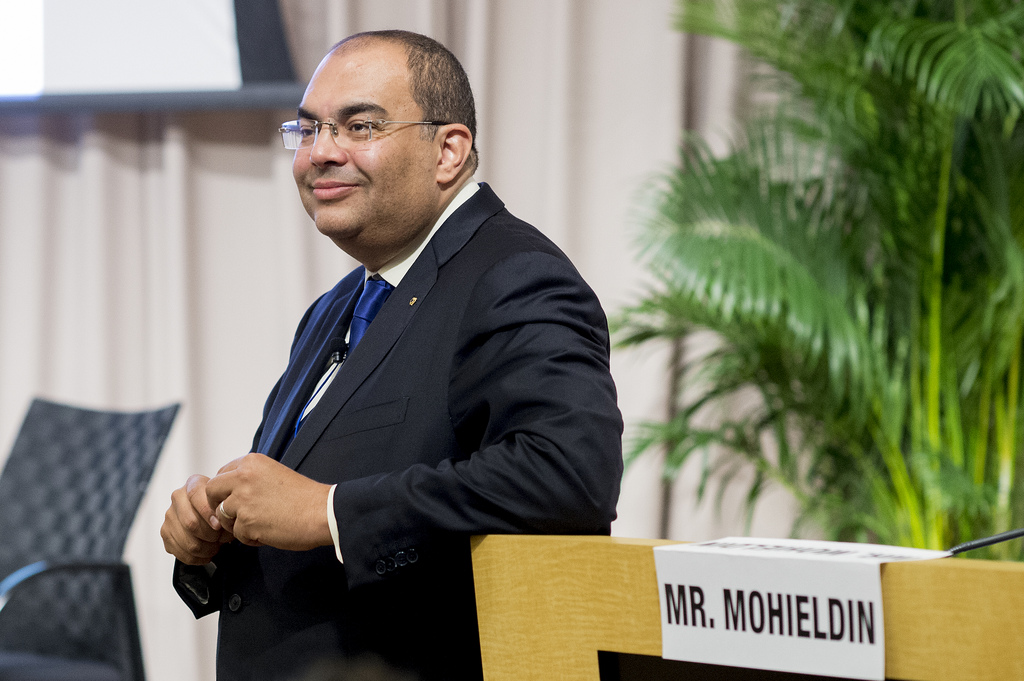Washington – World Bank Senior Official Mahmoud Mohieldin said that Arab countries could benefit from major economic opportunities by depending on their human resources, especially in the field of Information Technology.
In an interview with Asharq al-Awsat newspaper, Mohieldin said that despite slow growth witnessed in the Middle East in 2017 due to conflicts and fall in oil prices, Arab States could still take advantage of opportunities in the IT sector, as the most traded and most needed product in the economies of the 21st century.
Mohieldin is the World Bank Group Senior Vice President for the 2030 Development Agenda, United Nations Relations, and Partnerships.
He told Asharq al-Awsat about the new international trends to benefit from Financial Technology, know as FinTech and considered as a new technology platform for financial transactions.
The official also talked about the ongoing Spring meetings of the International Monetary Fund (IMF) and the World Bank in Washington, and progress achieved in the implementation of the UN Sustainable Development Goals (SDGs), as well as efforts deployed by Saudi Arabia, Egypt, Morocco and other countries in promoting development.
On challenges facing the Middle East, Mohieldin said that internal conflicts, slow investments and the decrease in oil prices have affected the countries’ gross national income (GNI) and growth rates.
“Our estimates indicate that the growth rate in the Middle East and North Africa region would reach 2.6 percent in 2017, compared to 3.5 percent last year,” he stated.
“While the current situation does not indicate any improvement, we have hopes that finding a solution to the Syrian crisis, ending the war in Yemen, and restoring peace in Libya would positively influence those countries and the whole region,” Mohieldin added.
“Growth in the region depends on security stability, the implementation of economic reforms and investments in building and reconstruction,” the official noted.
Asked about solutions to promote economic performance in the region, especially in the Gulf, Mohieldin said: “The economies of the 21st century require innovative solutions in the wake of technological progress.”
He noted that Arab countries should rely more on their young population and seek to diversify their income by promoting the use of IT.
Mohieldin underlined the importance of FinTech, which he said was at the core of the evolution of banks and financial institutions.
He added that the new technology would allow countries to overcome development challenges, by making widespread access to financial services possible, while preserving the privacy of financial transactions.
The implementation of the Sustainable Development Goals (SDGs) is another important topic of discussion during the IMF and World Bank Spring meetings.
“While it is still early to evaluate the progress achieved over the past two years, there are some indications that a number of countries have taken measures in this regard,” he stated, commenting on the implementation of the SDGs since their adoption in September 2015.
“The performance of Arab States (with regards to the SDGs) was deceiving in some countries and good in other countries, especially in the field of basic education,” he said.
